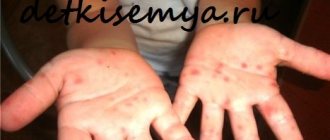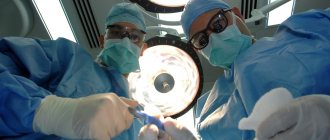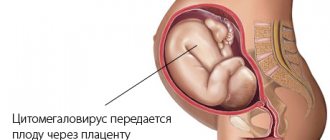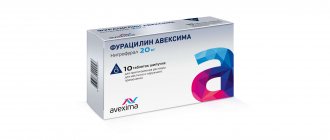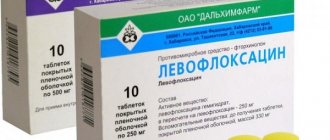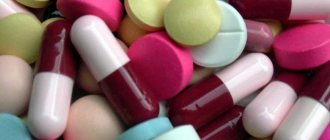Most often, infection occurs when pathogens enter the mouth. There are several dozen of them, among which the most harmless is ordinary food poisoning. But sometimes you have to deal with botulism or salmonellosis. Eating expired foods, dirty hands or a sudden change in diet lead to intestinal infections. It's good if it all ends with frequent visits to the restroom. But in some cases you can end up in the infectious diseases department, and death is possible. Children are most susceptible to these infections. Their disease may be more complex. Knowing how to treat intestinal infection in children and how to protect against it, you will keep your baby healthy.
Most often, infection occurs when pathogens enter the mouth. There are several dozen of them, among which the most harmless is ordinary food poisoning. But sometimes you have to deal with botulism or salmonellosis.
Types and characteristics of intestinal infections
Intestinal infections are divided into:
- viral;
- bacterial.
With enterovirus infection, muscle pain occurs and cramps occur.
The child develops weakness, is apathetic, and has photophobia. It also causes complications with the central nervous system and cardiovascular problems. There are about a dozen groups of viral infections, but the most common are enterovirus, adenovirus and rotavirus. These viruses are transmitted not only through food or water, but also through dirty hands and objects, airborne droplets, and fecal-oral routes. When they multiply in the body, they produce enterotoxin, which poisons the child.
During a bacterial infection, products infected with pathogenic bacteria enter the body. Microorganisms multiplied in them and left behind toxins. The more there are, the faster the disease will begin. It will be violent and acute, with gastritis and gastroenteritis syndromes.
Prevention of acute intestinal infections when preparing food
Measures to prevent intestinal infections that are observed during food preparation and storage of food products:
- Do not under any circumstances consume foods and dishes that raise doubts about their quality or that have expired.
- You can buy food products only from those sellers who have passed a special inspection. This requirement is especially relevant for perishable meat and dairy products.
- Prevention of gastrointestinal infections requires strict adherence to temperature conditions when preparing food. Boiling kills pathogenic microorganisms that cause diseases of the digestive tract.
- Wash the shells thoroughly before breaking them. There is a high risk of finding salmonellosis pathogens on the surface of egg shells. They are easily washed off with running water.
- In the kitchen, use individual cutting boards for raw meat and fish, for bread, and also for vegetables. These boards are placed and stored so that the products do not touch each other.
- When working in the kitchen, thoroughly wash your hands and kitchen utensils when moving from handling one product to another.
- Subject the mushrooms to thorough heat treatment.
- If you are not sure about the quality of drinking water, boil it.
- Wash raw vegetables and rinse with boiled water.
- Boil first courses at least once a day.
- It is recommended to prepare salads with mayonnaise or sour cream immediately before serving.
Signs of a viral infection
Signs appear a few days after the virus enters the body. This makes it difficult to determine where and how the virus entered. That this is an intestinal infection can be understood by the following symptoms:
- elevated temperature up to 38–39 °C;
- vomiting 4–6 times;
- loose stools with an unpleasant odor;
- inflammation of the mucous membranes.
With enterovirus infection, in addition to this, muscle pain and cramps occur. The child develops weakness, is apathetic, and has photophobia. This infection also causes complications with the central nervous system and cardiovascular problems.
With adenovirus infection, a runny nose, conjunctivitis, and loose stool appear. They usually occur at the acute stage of the disease and last 2 days.
Signs of a bacterial infection
This disease occurs with the following symptoms:
- elevated temperature up to 38 °C;
- colitis;
- vomit;
- tenesmus (painful urge to defecate);
- loose stool.
All symptoms of intestinal infection are divided into general and local. Common signs include intoxication and dehydration.
The body becomes dehydrated, the child does not want activity, he is lethargic and pale.
Stool due to a bacterial infection may vary in color and impurities. It can be greenish, yellow-orange, with flakes of mucus or blood. When you go to the hospital, you must inform the doctors about the condition and color of your stool.
Symptoms
After an intestinal infection penetrates the gastrointestinal tract, the child experiences indigestion and the inflammatory process progresses on the mucous membranes of the stomach and intestines. The first symptom of an intestinal infection is diarrhea. Then vomiting, nausea, weakness, dizziness, loss of appetite, food rejection (up to the gag reflex), and fever up to 39 degrees begin to manifest themselves. If all these symptoms occur, then you need to see a doctor - you need help.
If someone in the family is infected with intestinal infections, then all other members of this family need to undergo prevention. It consists of observing basic hygiene standards (washing your hands outside, after visiting the toilet, before eating). In addition, it is necessary to process vegetables and fruits before consuming them, store food properly in the refrigerator, and under no circumstances eat from the same container with a sick person (he should have separate utensils during his illness).
Important!
Intestinal infection in 90% of cases manifests itself in the form of vomiting and diarrhea. This means that the patient is losing fluid in the body. To avoid dehydration (another serious problem requiring medical attention), you need to drink enough liquid (mineral water or special pharmaceutical solutions).
Clinical picture of the disease
All symptoms of intestinal infection are divided into general and local. Common signs include intoxication and dehydration.
When intoxicated, the temperature rises, headache, weakness and vomiting appear. When dehydrated, the skin and mucous membranes become dry, the elasticity of the skin decreases, and there is less urine and it darkens.
With local symptoms: loose stools, abdominal pain, vomiting.
Symptoms will manifest as damage to the stomach (gastritis), small and large intestines. In some cases, one or the other is affected, but often it occurs in combination. The clinical picture will depend on this.
Diagnostics
Treatment measures also depend on which pathogens are identified. Acute intestinal infection is diagnosed by methods such as: bacteriological culture, enzyme immunoassay, antibody test, coprological study.
Features of the course of infections caused by pathogenic microflora
Shigellosis (dysentery) is one of the most common types of intestinal infections in children. It begins acutely with diarrhea followed by intoxication. Characteristic symptoms are tenesmus, when there is a urge to defecate, but there is no stool; fecal stool, scanty with an admixture of mucus and pus; pain in the ileum occurs as intestinal colic; temperature increase.
In severe hypertoxic form, there may be complications such as neurotoxicosis and hypovolemic shock.
Salmonellosis occurs in several forms. Up to a year, it is often an acute intestinal infection affecting the stomach, large and small intestines. The height of the disease occurs 3–7 days from the onset of the disease.
The isolated gastric variant, as well as the gastroenteric variant, occurs in children over three years of age. Repeated vomiting, intestinal colic, and frequent green stools, like “swamp mud,” appear.
The septic form develops in children under one year of age, premature and weakened. It is accompanied by the appearance of purulent foci throughout the body: organs such as lungs, joints, bones, meninges, and kidneys are affected. What signs will develop depends on the location of the purulent focus.
The typhus-like form of salmonellosis is characterized by fever with headaches, vomiting, impaired consciousness, and rash.
Escherichiosis, depending on which groups of Escherichia coli (Escherichia coli) are the causative agents of the disease, is divided into several types. This is Escherichia coli: enteroinvasive, enterotoxigenic and enteropathogenic. OKI caused by the first two types affects older children more often, and the third – children under 2 years of age.
The disease begins in an acute form with signs of intoxication. Then symptoms such as fever, weakness, poor appetite, acute intestinal pain, nausea and vomiting, liquid watery and foamy stools of yellow or orange color appear. There may be an admixture of mucus and greens in the stool. Depending on the severity of the disease, symptoms may vary in severity.
People can only become infected with yersiniosis from animals by eating contaminated foods. Intestinal infection of this group begins with an increase in temperature. Depending on what symptoms are present, generalized and localized forms are distinguished.
The generalized form is characterized in a child by pain in the abdomen, fever, loose stools, damage to the liver, spleen, sclera and conjunctiva of the eyes. A rash may appear symmetrically on different parts of the body. If a child has an immunodeficiency state, there is a risk of sepsis.
Localized intestinal forms occur with abdominal pain, increased gas formation, loose stools with a foul green odor, and mucus.
Features of the course of intestinal infections caused by opportunistic flora
Proteus intestinal infection can affect both the stomach and the underlying sections of the gastrointestinal tract. Combined intestinal damage can occur in children under one year of age who are weakened or who have received long-term antibacterial therapy. Observed: high temperature, symptoms of intoxication, pain along the intestines. The child's stool is foamy, profuse, foul-smelling, and then may become scanty with an admixture of blood, greens, and mucus.
Gastritis and gastroenteritis occurs in older children and occurs in mild, moderate and severe forms.
Proteus OCI is also characterized by damage to the urinary system, skin, eyes, and ears.
Klebsiella intestinal infection is most dangerous in childhood, especially if a child under one year of age has reduced immunity due to prematurity. It begins with an increase in temperature, intoxication, loose stools mixed with greens, mucus, and often with blood. In premature newborns, this type of intestinal infection is severe with the development of sepsis. In older people, intestinal symptoms are mild.
Campylobacteriosis is another acute intestinal infection that is caused by opportunistic microflora.
Campylobacteriosis begins acutely with fever, intoxication, bloody diarrhea, and cramping abdominal pain. In an infant, blood in the stool is the only sign of infection. And in newborns, the infectious process can generalize, affecting the liver, pancreas, and joints.
Features of the course of viral intestinal infections
Acute intestinal infections of viral etiology most often occur at an early age. They often occur in the form of gastroenteritis, becoming severe only in newborns.
Rotavirus infection begins acutely: initially, the child’s health worsens, and the child’s body temperature rises. Then vomiting appears. Then comes loose stools and pain along the small intestine. A characteristic symptom of this type of viral intestinal infection is signs of inflammation of the respiratory tract.
Often rotavirus intestinal infection occurs in a mixed form, when other pathogens of the intestinal group are also associated. What pathogens could these be? For example, Shigella, Salmonella, etc. In these cases, there are symptoms of both viral and bacterial etiology.
Enterovirus infection occurs more often in children under 2 years of age. The clinical picture of this disease depends on which organs are affected: meningitis, tonsillitis, myocarditis, myalgia. In the gastrointestinal tract, the infection occurs as enteritis with a slight increase in temperature, loose stools without impurities, abdominal pain, and catarrhal symptoms.
Only in weakened infants can the disease progress unfavorably, with severe signs of intoxication and dehydration.
We also read: menu and diet for intestinal infections.
Complications
Severe poisoning adds complications to the child. They can be expressed as:
- neurotoxicosis;
- insufficient blood circulation;
- pulmonary failure;
- renal failure;
- stomach bleeding;
- hypovolemic shock.
With neurotoxicosis, convulsions occur, the child does not understand where he is, becomes delusional, and hallucinations appear. Circulatory failure occurs when dehydration occurs. The pressure drops, the skin turns pale, and the heart sounds are muffled.
Pulmonary insufficiency is expressed by shortness of breath and shallow breathing. Kidney problems lead to lower back pain and decreased daily urine output. Hypovolemic shock occurs when fluid is lost, reducing body temperature and weight.
First steps in case of poisoning
Since during an intestinal infection the child’s body loses a large amount of fluid, it is necessary to constantly replenish it. You can purchase special dehydration medications at the pharmacy. Dilute the powder of this product in water and give it to the child to drink. There is no need to try to drink everything at once; you need to do it in small sips at short intervals.
In most cases, treatment of acute intestinal infection in children takes place at home. There is no need to give any medications.
You also need to give the child sorbents. They will help remove some toxins. The most famous is activated carbon. It is given at the rate of 1 tablet per 10 kg of weight. But if desired, you can purchase other sorbents.
If diarrhea or vomiting is profuse, there is no need to stop it. In this way, the body tries to get rid of toxins. In this case, it is imperative to replenish the lost fluid. But you need to understand that the urge to vomit and a small amount of it after a while only indicate that a sufficient amount of toxins has been absorbed into the blood. Therefore, the body tries to remove them in this way, but in this case it no longer works. Therefore, it is advisable to use antiemetic drugs.
Causes
The first reason why humanity suffers en masse from intestinal infections is a simple failure to comply with sanitary and hygienic standards. This concept means: dirty hands and food, dust in the kitchen, flies, eating expired products.
An intestinal infection begins to progress when bacteria enter the stomach in the form of dysentery bacillus, staphylococcus, typhoid bacillus or cholera, as well as salmonella. A person can become infected with some of these bacteria through drinking water or tap water, others through food (dairy products, meat, fish, eggs). Some of these pathogenic bacteria cause significant harm to the human body, especially children, while others affect the stomach, but all this is done with vomiting and nausea.
But we should not forget that intestinal infection in many cases poses a real threat to human life.
Bacteria that cause the development of intestinal infections most often do not affect the entire gastrointestinal tract completely, but only some of its sections. For example, if the stomach is inflamed, then we will deal with gastritis, with inflammatory processes of the duodenum - with duodenitis, with damage to the small intestine - with enteritis, and with the large intestine - with colitis. If several parts of the gastrointestinal tract are affected by bacteria at once, then the diagnoses sound like: gasroduodenitis, gastroenteritis, gastroenterocolitis. Gastroenterologists can determine which part of the stomach is affected by the symptoms expressed by the patient (in this case, the child’s parents), as well as by feces, vomit, blood, and water used for gastric lavage). Depending on which bacillus is detected in the patient’s tests, such a disease is diagnosed (a dysentery bacillus is detected, which means dysentery is progressing in the body).
It happens that pathogenic microorganisms, that is, E. coli, are detected in the tests of an adult or child, but there are no external manifestations of the disease. In this case, the patient is considered a healthy carrier of the bacteria.
How do you know if you need medical help?
In most cases, treatment of acute intestinal infection in children takes place at home. There is no need to give any medications. But there are infections that cannot be overcome on your own and require medical intervention. How do you understand that your child needs to be taken to the hospital?
- If the child cannot drink, he constantly regurgitates water.
- If there are blood clots in stool and vomit.
- When dehydrated.
- For diarrhea and vomiting with some symptoms.
- For constant abdominal pain.
Dehydration can be detected by dry skin and mucous membranes, a dry tongue, and lack of urination for more than 6 hours. There will also be no sweat or tears. Particular attention should be paid to diarrhea and vomiting. If they are accompanied by a skin rash, severe pallor, a very high temperature and a headache, you need to go to the hospital. In the hospital, infusion therapy will be used, introducing fluid intravenously. This will help compensate for its loss due to vomiting and diarrhea.
Medicines for intestinal infections in adults and children
Intestinal infections, as a sudden and acute disruption of the body’s functioning, affect the action of not only the main affected systems, but also the body as a whole. How to prevent them, overcome them, what medications for intestinal infections will be effective, you need to know now, so as not to face this trouble face to face.
Types of intestinal infections
The entire variety of intestinal infections includes only four types of pathogens:
- Viral intestinal infections - among these there are viruses that affect the main human organs (polioviruses, Coxsackie viruses A and B, enteroviruses), which can cause paralysis, affect the central nervous system, liver and pose a direct threat to the vital functions of the body. As well as viruses that are limited to intestinal symptoms: diarrhea and gastroenteritis of varying severity (rotaviruses, intestinal adenoviruses, astroviruses and coronaviruses).
- Bacterial intestinal infections – the leading role in bacterial intestinal infections is played by enterotoxins, which are released by bacteria during their life (Escherichia coli, Vibrio cholerae, Salmonella, Shigella, Yersinia, Klebsiella). Regardless of the characteristics of the processes occurring in the intestines, any of the pathogens causes diarrhea syndrome with the removal of water from the body and the leaching of both harmful and beneficial substances. Leads to water-electrolyte imbalance.
- Fungal intestinal infections - most often caused by fungi of the genus Candida.
- Protozoal infections – giardiasis, amoebiasis.
Determining the pathogen plays an important role when choosing a medicine for poisoning or intestinal infection.
Symptoms for intestinal infections
Depending on the degree of poisoning, the type of pathogen and the amount of toxic substance entering the body, the symptoms will vary from pronounced to diseases with scanty symptoms of a general nature. Intestinal symptoms are common to many intestinal infections.
- Diarrhea is the first obvious manifestation of an intestinal infection. It has the appearance of unformed feces of a different nature (from mushy, abundant watery, to the release of a meager amount of feces with an abundance of mucus and blood elements). Diarrhea occurs three times a day and intensifies and becomes more frequent with the severity of the disease.
- Constipation is also a variant of the development of intestinal infection, when watery stool cannot be passed due to the formation of fecal plugs. Retention of feces in the intestinal lumen leads to the reabsorption of toxic components into the body and the manifestation of a general decrease in immune forces.
- Temperature increase - up to 37.5 in the initial stages of the disease, up to 38.5–39 in acute or undiagnosed disease.
- General weakness, fatigue - an increase in the volume of toxic toxins in the circulating blood leads to the development of general intoxication of the body.
- The feeling of aching is a consequence of the inflammatory process in the body and the fight against it. Accompanied by elevated temperature.
- Abdominal pain is often sharp, spasmodic in nature, temporarily passing into a resting phase, and then recurring with more frequent frequency.
- Nausea and vomiting are an example of an inflammatory process that has already spread throughout the body with a stream of toxic toxins.
In the acute course of the disease, frequent diarrhea, the symptoms become more pronounced, the pain intensifies, the intestinal syndrome worsens and brings even more inconvenience. And the need to use medications for intestinal infections increases.
- False urge to defecate – when the intestinal walls are irritated by feces or infectious pathogens. Often occurs in the absence of the amount of feces necessary for defecation, accompanied by the release of mucus and a scanty amount of feces of varying consistency. The desire to have a bowel movement does not disappear.
- Tenesmus is a painful false urge, in which sharp cramping pains of a spastic nature are added to the usual sensations.
- Flatulence (bloating) can occur at any stage of the disease and accompanies almost any intestinal infection. Their quantity depends not only on the severity of the disease, but also on the food set used for food. Thus, legumes, vegetable products, yeast-containing and starchy products cause more gas formation.
- Lack of appetite - due to intoxication of the body. It is promoted by stagnant processes in the stomach and intestines.
- The condition of the tongue is a dry tongue with a grayish-yellow coating as a clear sign of glossitis (an inflammatory process of the body manifested on the tongue). A tongue coated with a thick white coating is observed during constipation or an acute period of intestinal infection.
Diagnostics
Diagnosis of intestinal infections consists of a survey and laboratory research methods.
- Analysis of anamnestic data allows you to draw a logical chain in the manifestation of intestinal syndromes and have an idea of intoxication of the body.
- Laboratory examination of stool and identification of parasites or bacteria.
- Blood test - determining the presence of specific antibodies in the blood.
Treatment
Treatment is based on removing pathogenic organisms and the toxins they produce from the blood circulation. It is directed against the pathogen as the cause of the disease and is inextricably linked with diagnosis. Treatment is not aimed at suppressing symptoms, but at removing dangerous substances and restoring the strength of the body as a whole.
Depending on the severity of the disease, it can be carried out at home or in a hospital, under the supervision of medical staff.
It involves the patient taking medication for intestinal infections, drinking plenty of fluids to restore water balance, and generally strengthening the body through increased nutrition with the necessary set of microelements and vitamins.
Treatment of intestinal infections with folk remedies
Traditional medicine is good for intestinal infections with mild symptoms, in the absence of an exacerbation stage.
- St. John's wort decoction - pour one and a half tablespoons of chopped herb with a glass of boiling water, heat in a water bath, and then dilute the resulting decoction to its original state. Consume at least three times a day, two days, store the broth in the refrigerator.
- Oak bark decoction - pour 10 g of oak bark with a glass of boiling water, boil for 20 minutes and consume 5 times a day before meals.
- Decoctions of calamus or marshmallow root help relieve symptoms of intoxication.
Also, various herbal infusions (alder cones, cinquefoil root, nettle leaves) can be used as a medicine for intestinal infections.
Emergency medicine for intestinal infections
Emergency care is necessary for acute intestinal infections with severe diarrhea and intoxication syndrome: with bowel movements more than eight times a day, including cholera, when stool takes on the appearance of rice water.
In this case, an indispensable medicine for intestinal infections is:
- Carrying out infusion therapy with saline solutions.
- Intramuscular injection of a lytic mixture consisting of “Diphenhydramine” (1% – 1 ml), “Papaverine” (2% – 2 ml) and “Analgin” (50% – 2 ml).
- Take diluted powder “Regidron” or “Gastrolit” orally – in fractions, 0.5 teaspoon each.
- Urgent hospitalization in a hospital, preferably of an infectious type.
Medicine for intestinal infections for children
For acute intestinal disorders in children under three years of age, treatment requires the immediate intervention of specialists. In case of mild severity of the disease, when there are no pronounced pain symptoms, nausea and vomiting, mild diarrhea (2-3) times a day, mushy stool with a small amount of mucus, therapy can be carried out at home.
It is very important to choose a medicine for intestinal infection for children, since their body is very weak and even mild dehydration can lead to irreparable negative consequences.
In addition to the standard restoration of water-salt balance, the following medications for intestinal infections are used:
- “Smecta” is a powder for preparing a suspension, used for children from birth, eliminates intestinal symptoms, including bloating. Up to 1 year – 1 sachet once a day, over two years – up to 3 sachets per day.
- “Stopdiar” is a ready-made suspension, suitable for children from 2 months of age, used 1 scoop 1-2 times a day.
- “Enterogel” is a sorbent with a pasty consistency, used in children under 1 year of age, 5 (ml) 2 times a day.
For light but frequent bowel movements, biological products (Lacidophil, Linex, Enterozermina) are used as a cure for intestinal infection.
Prevention of intestinal infections
- Clean hands. Pure vegetables and fruits eaten.
- Compliance with food preparation rules.
- Sufficient heat treatment of meat products and eggs.
- Strengthening the immune system. The use of drugs for the prevention of intestinal infections: biological products “Bifidumbacterin”, “Acilact”, “Enterozermina”.
Many people wonder if there are medications to prevent intestinal infections.
There are none as such, it will be enough to follow the above recommendations.
Factors predisposing to infection
- An organism weakened by disease.
- An organism with a disturbance in the composition of the intestinal microflora due to dysbacteriosis.
- Hereditary factor.
- Poor nutrition.
Medicines for intestinal infections at sea
It is better to choose medications for intestinal infections for the treatment and prevention of diseases while on vacation in a ready-to-use form.
For children, these will be suspensions “Nifuroxazide”, “Stopdiar”, “Enterozermina” - a liquid enriched with live bacteria in bottles. Activated carbon capsules and tablets are suitable for adults.
Regidron powder for poisoning accompanied by severe vomiting.
Help with acute intestinal infections and body poisoning
Medicine against intestinal infection is prescribed exclusively by a doctor. You can only provide first aid to the patient.
It consists of rehydration, the use of medications aimed at removing infection from the body, and urgent hospitalization in an outpatient clinic to provide adequate treatment until complete recovery. Under no circumstances should the symptoms be suppressed by taking pain medication. The appearance of blood streaks in the stool indicates the severity of the disease and requires immediate treatment.
Priorities for choosing medications
It is up to you to choose which medications to use for intestinal infections. When choosing dosage forms, pay attention, especially when it comes to young children. Recently, doctors are increasingly paying attention to such a medicine as Enterofuril, it is available in capsules and in the form of a suspension, and has a small number of side effects.
When starting treatment and mild manifestations of the disease, leave the choice to the simplest drugs: “Activated carbon”, “Smecta”. There is no need to overload the body with chemical compounds.
Medicines for intestinal infections in adults will be stronger than in children.
Choose complex treatment of different directions: restoration of water-salt balance, elimination of symptoms (diarrhea, bloating, pain), strengthen the body with the use of living beneficial microorganisms from biological products, supporting the intestines.
But not only medications for intestinal infections can help. Do not forget about proper nutrition, as often foods, if stored incorrectly, can cause intestinal upset and poisoning.
Source: https://FB.ru/article/203820/lekarstva-ot-kishechnyih-infektsiy-u-vzroslyih-i-detey
Treatment of bacterial intestinal infections
Treatment in this case will go in several directions. First of all, it is important to replenish the fluid in the child's body. Since the baby’s reserves of water and salt are small, intestinal diseases pose a danger to him. Therefore, it is important to fully replenish your water supplies.
To do this, use special dehydration preparations or prepare a solution yourself. You will need:
- 1 liter of water;
- 2 tbsp. l. Sahara;
- 1 tsp. salt;
- a pinch of soda.
Stir all this until the bulk ingredients are completely dissolved and give to the child to drink. You can warm up the water a little, which will make drinking more pleasant. If it is not possible to make a solution or purchase it at a pharmacy, then mineral medicinal water is suitable.
In some cases, antibiotic therapy is prescribed. This occurs with decreased immunity, hematological diseases or severe intestinal infection. It is also necessary to replenish and normalize the intestinal microflora. In this case, special medications are taken. Equally important is diet, which is part of the treatment.
Medicines for intestinal infections for children
Digestive upset caused by rotavirus intestinal infection entering the mouth is familiar to many. This often happens in the hot season when personal hygiene rules and storage conditions for dairy and meat products are not observed.
More than 30 types of pathogens of intestinal invasions are known, which often infect children when severe diarrhea and fever occur, which can lead to disruption of the functionality of many internal organs, in particular the intestines, liver, and kidneys.
E. coli is tenacious and multiplies quickly when it enters the oral cavity through food and household items and leads to the development of serious diseases: staphylococcus, rotavirus, enterovirus, dysentery, salmonellosis, cholera.
Intestinal infections are a collection of diseases caused by various types of bacteria.
How to recognize?
Symptoms may vary. It all depends on the type of microorganisms that have entered the mouth and their quantity. The main features include:
- diarrhea,
- passing loose, watery stools with mucus and blood particles,
- pain in the abdomen,
- constipation due to the accumulation of watery feces that are unable to come out due to the formation of plugs.
Symptoms can be either pronounced or mild. They intensify progressively, causing severe discomfort. Intestinal syndrome can reach such a scale that the question arises of taking medications to suppress and remove the infection from the body.
As a rule, diarrhea is a clear symptom of intestinal infestation poisoning. The danger lies in dehydration, the removal of salts and minerals from the body. It is important to prevent such a serious condition. If unpleasant symptoms appear, urgent measures must be taken to replenish the body with fluids and carry out a rehydration procedure in order to improve well-being.
In the stomach, the pathogen is not destroyed because it is resistant to hydrochloric acid.
What is special about the treatment?
The main goal is to rinse the stomach, take medications to suppress intestinal infections and food intoxication. A diet with plenty of tannin is essential. It is recommended to drink strong tea, eat bird cherry, blueberries, and replenish the deficiency of water and salts in the body.
In the first 4-6 after the onset of unpleasant symptoms, it is necessary to carry out primary rehydration to maintain fluid levels, water and electrolytes, especially if there is constant diarrhea and vomiting.
You need to drink water in sips or tablespoons; in addition, you can take special solutions, drinking mineral water.
How to treat?
The main treatment is to remove intestinal infestations from the body. The specifics are:
- cleansing the intestinal cavity,
- restoration of normal microflora,
- normalization of water balance by taking rehydron, albumin, hemodez (intravenously),
- taking sorbents to remove toxins and poisons,
- taking probiotics to restore microflora in the intestines,
- taking activated carbon, Smecta, Enterosgel, Polyphepan, Carbolong, as harmless drugs for adults and children.
Depending on the symptoms, the doctor will prescribe one or another medicine for the infection:
- opiates to inhibit intestinal motility,
- loperamide, trimebutine (tablets) to increase the absorption of nutrients, normalize intestinal function,
- hormonal drugs in the form of injections for diarrhea to normalize stool, relieve signs of inflammation, improve intestinal absorption,
- calcium gluconate,
- ergocalciferol, indomethacin for intestinal infections to eliminate attacks of diarrhea, improve general well-being and heart function,
- gastrolites as medicines to restore electrolyte balance, provide an astringent effect, eliminate symptoms of diarrhea,
- loperamide as an antidiarrheal agent for diarrhea by taking 2 tablets per day,
- antiseptic drugs by taking 4 capsules for 3 days
- furazolidone to eliminate the toxic effects of infection on the gastrointestinal tract.
Treatment with antibiotics
An intestinal infection of bacterial origin cannot be completely eliminated from the body without taking antibiotics, in particular:
- chloramphenicol with a wide spectrum of action,
- indomethacin, which is quickly absorbed into the blood and actively affects the intestines, suppressing the activity of invasions,
- amoxiclav - an antibiotic from the penicillin group to block the development of microbes and pathogenic bacteria,
- phthalazole, applicable for infants and pregnant women as a non-toxic drug with insignificant absorption into the blood. The composition has an excellent effect on the intestines, eliminates the infectious process and is well tolerated by the body,
- Supraxa for children, as a safe medicine with an active substance and rapid distribution throughout the body in order to eliminate signs of proliferation of intestinal invasions,
- enterofuril to act on the intestines and without absorption into the gastrointestinal tract,
- cephalosporins to destroy pathogenic flora, remove toxins from the body,
- aminoglycosides with a broad spectrum of action,
- flemoxin from the penicillin group with an active effect on gram-positive and negative bacteria of staphylococcus, clostridia, streptococcus, Helicobacter pylori, salmonella,
- furazolidone, nitrofuran with an active effect on bacteria and protozoa. Indicated for use in cases of salmonellosis, shigellosis,
- sumamed from the group of macrolides to activate the immune system, restore intestinal microflora, reduce intoxication of the body,
- biseptol to eliminate salmonella, staphylococcus,
- flemoxin to suppress staphylococcus, streptococcus, Helicobacter pylori, intestinal invasions,
- Sporobacterin, Claritin, Acipol, Acylate, Probifor with sorbing components.
Therapy for intestinal infections is complex and the main thing is to prevent dehydration, which can lead to serious complications, including death.
It is important to understand that the consequence of using antibiotics for mild or moderate forms of the disease will be to increase the duration of diarrhea by several days.
First of all, it is necessary to eliminate attacks of nausea and vomiting, thereby helping the body adapt.
Many people try to use any home remedy for intestinal infections in order to quickly get rid of pathogenic bacteria by performing enemas to cleanse the large intestine, wash out pathogenic flora, and alleviate general well-being. It is recommended to administer enemas correctly. For this:
- prepare an infusion of chamomile, thyme with t -200g,
- gently insert into the anal passage,
- Carry out a cleansing procedure so that all stagnant water and pathogenic flora are washed out of the intestines.
Antibiotics as drugs are indispensable in the treatment of intestinal invasions, but they kill not only pathogenic, but also beneficial microflora in the intestine. It is very important, along with them, to take Linex in a composition with lactic bacteria in order to normalize the microflora.
Preparations containing lactobacilli help normalize the acidic environment in the intestines, eliminate pathogenic flora, and improve digestion.
Lactobacilli, as a medicine for intestinal infections, will prevent microorganisms from attaching to the intestinal walls and being absorbed into the blood, maintaining normal microflora, and restoring the disturbed water-salt balance while taking antibiotics.
Source: https://dou99.ru/infektsii/lekarstva-ot-kishechnoj-infektsii-dlya-detej
What are the dangers of dehydration?
Dehydration is very dangerous for children. Water is essential for the body, and its lack can lead to dire consequences. Since water takes an active part in digestion and elimination of toxins, if there is a lack of it, the body cannot remove them and accumulates them in the excretory organs. And this provokes kidney and bladder disease.
In addition, the condition of the blood is disturbed. It becomes thick, which leads to increased pressure and blood clots. Kidney failure occurs and brain function is disrupted.
Dehydration makes some diseases worse. The most dangerous of them are diseases of the excretory system and asthma. Since there is a shortage of water in the body, the airways become slightly smaller, helping to retain fluid. And this negatively affects breathing. It becomes superficial and frequent. If a child has asthma, then this threatens frequent attacks.
Will there be immunity to a viral infection?
When you first become ill with a viral infection, the body begins to produce antibodies, which allows us to talk about relative immunity. It is relative, because there are many more causative agents of the disease, and when the body encounters other viruses, these antibodies will not help alleviate the disease. And with age, the number of antibodies will decrease, so it is not surprising that the child may get sick again. But next time the disease will not be too active. Therefore, you should not rely too much on the production of antibodies, although this will help the immune system defeat the disease faster next time.
If parents want to protect their child, they can get vaccinated against rotavirus. It is carried out at the age of 1.5–8 months of age. If the vaccine was not given in early childhood, then treatment of the viral disease occurs according to the doctor’s recommendations.
Nutrition during treatment
Nutrition is selected taking into account the child’s age and condition. But all food should be easily digestible and quickly digested. For older children, the following is excluded from the menu:
- milk;
- fatty, spicy, salty foods;
- fried foods;
- raw vegetables or fruits;
- smoked meats
This is due to reduced enzymatic function of the body. The gastrointestinal tract simply will not be able to digest and assimilate such food, and this will worsen the child’s condition. But it is impossible to transfer a child to fasting, as is recommended for adults. Firstly, the baby simply cannot withstand two days of hunger strike. Secondly, it is dangerous for children with low body weight. Therefore, you should carefully select your diet. It is better if it is vegetarian, based on cereals and with the addition of vegetables. They can be boiled or steamed, baked in the oven without oil or hot spices.
Infants are recommended to consume fermented milk mixtures. In case of a viral infection, they need to replace the regular milk formula with a low-lactose one. Ideally, replace it with a lactose-free one. After treatment, be sure to add mixtures with bifidobacteria and lactobacilli to the diet.
Memo on preventing acute intestinal infections
Below is a reminder about how to prevent acute intestinal infections in children and adults.
- If you keep pets at home, they need routine preventive vaccinations and regular deworming to prevent acute viral and bacterial infections.
- The bulk of the problems that cause acute intestinal diseases, as well as intestinal helminthiases, occur in the spring and summer. They are often associated with swimming in dirty ponds. Therefore, it is better to choose for swimming those bodies of water that have been tested and meet the requirements set by the new sanpin.
- It is important to follow the rules of nutrition in extreme heat. This also applies to fried meat and kebabs. When cooking meat, cook it thoroughly to prevent protozoal diseases. In this way, you can reliably protect yourself from salmonellosis and E. coli. Often these infections occur after rotavirus against a background of weakened immunity.
- When purchasing vegetables and fruits in stores and markets, take precautions to protect yourself from illness. Choose only firm fruits without dents or areas of rot. There is no need to rush into buying early melons and watermelons. They contain harmful chemicals.
- Before putting vegetables or fruits in the refrigerator, wash them thoroughly under running water. Even if they are not consumed with the peel, rinse them! This will reliably protect both adults and children from rotavirus.
- It is not recommended to purchase food that is prepared and sold on the streets in the open air. It is important to remember this while on vacation at sea. Find out in advance where to complain when purchasing substandard products.
- If it is very hot outside, it is better not to cook food for 2-3 days. Pathogenic microbes can quickly develop in it. If the first dish was prepared for two or three days, boil it daily. The shelf life of products must be carefully monitored.
- Drink only boiled or filtered water. Buy bottled clean water in stores. This will protect you from rotavirus infection and escherichiosis.
- When buying ice cream in the summer, you should also take a number of precautions. As an analysis of morbidity shows, the safest ice cream is deep-frozen. In kiosks and street stalls, ice cream may thaw and then freeze again. Thus, it can easily become infected with acute gastrointestinal infections.
- The danger comes from insects - flies or cockroaches. These are carriers of dangerous intestinal infections. Get rid of domestic parasites and install mosquito nets on windows and doors. Eliminating domestic parasites will help you reliably protect yourself from rotavirus infection and a number of serious infections.
The requirement for the prevention of acute intestinal infectious diseases is thorough hand washing before eating, as well as after visiting public places. After returning from the street or after visiting the toilet, wash your hands thoroughly with soap and dry thoroughly with a separate towel. To prevent infection on the street or in public places, use wet wipes for children or special disinfectants.
Following these simple rules will help you avoid the development of a dangerous intestinal disease. If you do get sick, do not get carried away with self-medication, but consult a doctor. A medical worker must notify the sanitary and epidemiological surveillance center about the occurrence of cases of food poisoning or acute infectious diseases. The doctor will prescribe the necessary examination for rotavirus and explain whether it is necessary to go to the hospital or how to carry out treatment against rotavirus on an outpatient basis.
If a focus of intestinal infection is detected in a kindergarten or school, an emergency report on acute pathology is made to the sanitary and epidemiological authorities. For parents, the kindergarten issues a health bulletin on the topic of disease prevention and other issues related to rotavirus infection in children. An experienced doctor will give useful recommendations to parents on the biology of pathogens on how to protect themselves from rotavirus infection and a number of other intestinal diseases.
How to eat after recovery
Low enzyme deficiency remains for some time after recovery. Therefore, you should not immediately return to the usual menu. It's better to wait a few days. After all, it often happens that a child’s appetite awakens, and parents are ready to give him any food. It is usually fatty and too heavy for fragile intestines. Once it gets into it, it begins to rot, ferment, and leads to abdominal pain.
In nutrition, it is better to use the dishes that you had during your illness. Porridge, fruit and vegetable purees, biscuits are suitable. This menu is extended for 5 days after recovery. During this time, enzymatic activity is restored, and then the usual food is introduced into the diet.
To speed up this process, you can use drugs with the necessary enzymes. But you need to understand that this is not a panacea, and the body needs time to recover. Doctors do not recommend getting too carried away with medications, because the body itself and the mucous membranes of the gastrointestinal tract cannot recover so quickly. This leads to unpleasant abdominal pain, and the child again feels unwell. Such a mistake will only prolong the treatment, which will affect the general condition of the baby.
Prevention of intestinal infections
Nonspecific prophylaxis is mainly used. To do this, it is important to adhere to some rules that will eliminate the risk of infection.
- Maintain hand hygiene.
- Boil whole milk before drinking.
- Don't eat raw eggs.
- Thermally process the meat for sufficient time.
- Wash all fruits and vegetables before eating.
- Store prepared food in the refrigerator.
- When purchasing products, pay attention to the expiration date.
- Do not feed infants whole, unboiled cow's or goat's milk.
- Keep the house clean.
- If one of the family members is sick, give him separate dishes and disinfect them when washing.
If treatment is not given and the child does not get better, you should not expect a miracle and hope to cope with it yourself. This is especially true for very young children. Ideally, if the child does not get better within 24 hours, then an urgent need to go to the hospital. If you miss dehydration, you can cause great harm to your baby’s body. And by taking preventive measures, in most cases it is possible to protect yourself and your child.

